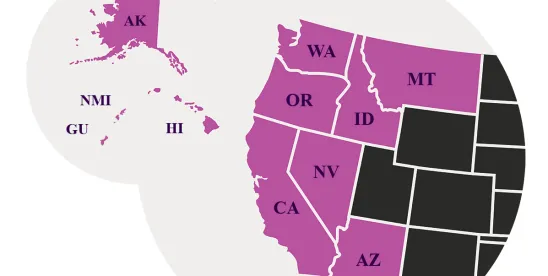So last night I did a post on a case that I thought was pretty meaningless.
And then I tossed and turned all night.
Setting the stage– since 2009 folks have been relying on an FCC ruling holding that anytime a consumer provides a cell phone number directly to a caller for a purpose closely related to the purpose of a call that’s express consent to be contacted using regulated technology for informational purposes unless the consumer instructs otherwise. (Which is why every time I provide my cell phone I say “no autodialers.”)
In essence, therefore, anytime a consumer provides a new number to a business in connection with an existing account the business can contact the consumer on that number about the account for informational/servicing purposes. There’s no need to obtain any further level of consent.
It's a fine enough rule–indeed an absolutely critical one in a day-and-age when phone numbers switch hands rampantly and consumers lack the patience to spend an extra 3 seconds on the phone while an agent reads some canned consent disclosure and then explains to the consumer why it is important that the consumer allow the business to contact them, etc.
It kind of just cuts right to the point– the law assumes the consumer wants to hear from the business about informational stuff. Conversely, the law assumes the consumer does NOT want to hear from the business on marketing stuff and makes it really tough to show express WRITTEN consent. And that’s the uneasy balance that sustains TCPAWorld as a brooding, swirling, semi-functional state.
And now the Ninth Circuit just ruined everything. Maybe. Probably.
So let me set the stage (again) real quick. The Ninth Circuit just heard an appeal that never should have been taken. The Defendant in the underlying suit argued that prerecorded job offer calls could be made to cell phones without express consent–which is a proposition so entirely frivolous that no court could ever possibly accept it.
Except one did. The district court hearing the case.
So the Defendant won a case it never should have won and instead of settling with Friedman for the pennies he probably would have accepted to let go of the case the Defendant fought a completely-doomed-from-the-start appeal to the Ninth Circuit that probably cost 50 times as much to take.
That’s fine. It's their money, not mine.
But anytime you take a case–particularly a bad case (or in this situation an extremely ridiculously bad case)–on appeal you never quite know what sort of unintended consequences might occur. Indeed, it's almost guaranteed under the universal law (you know, Murphy’s Law) that something bad is going to happen.
And so it has.
As I reported yesterday, in Loyhayem, No. 20-56014 (9th Cir. 2021)–available here–the Ninth Circuit Court of Appeals held that prerecorded job recruitment calls to cell phones require express consent under the TCPA. And, of course they do. All prerecorded calls do. There is literally no valid basis to argue otherwise.
But in framing its decision the Ninth Circuit made a really big oversight-probably because Appellee wasn’t really focused on the details in this one.
The Ninth Circuit states in summation that the TCPA requires “that prior express consent [must] have been given either orally or in writing [for informational calls].”
“Either orally or in writing.” That’s it. Two options. And “by giving out a phone number” is not among them.
Now, this is not, strictly speaking, a holding. And the issue of whether or not prior express consent can be presumed from a consumer supplying a number was not before the Ninth Circuit. But this line is a real problem–district courts may misinterpret it as a limitation on the sort of “presumed” express consent callers rely on every day.
That is, I expect Plaintiff’s lawyers to now argue that under Loyhayem the presumed consent rule is dead and express consent for informational calls must be given in writing or orally, only. I mean, that’s what the decision (sort of) says. And you compound this with Satterfield’s requirement of “clear and unmistakable” consent and we’re back to consumers having to suffer through long-winded scripts and agents haggling to convince folks to accept disclosures over the phone–just to provide an update on an account.
Hopefully, I’m overreacting and courts see Loyhayem as holding nothing more than that informational calls require express consent–however lawfully provided under existing law–but we’ve seen things like this spiral out of control before in TCPAWorld.




 />i
/>i

